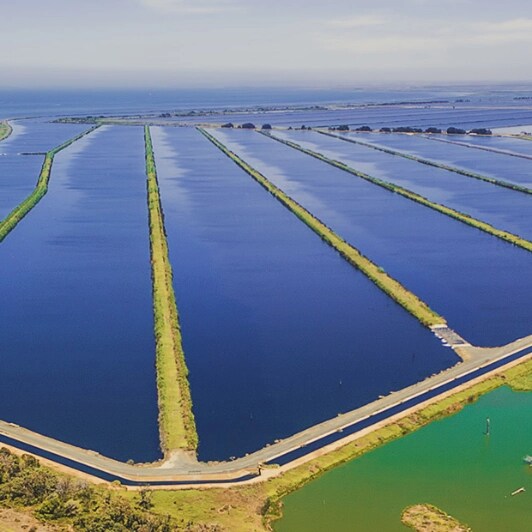Published: Oct 29, 2025
Customer experience: From service provider to trusted partner
Part 3 – Water intelligence: An NCS whitepaper
For decades, customer engagement in the water sector was largely transactional. Utilities delivered a commodity, billed for it, and responded to faults or complaints. But the expectations of today’s customers are far more complex. Influenced by their interactions with banks, telcos, and retailers, customers expect seamless digital experiences, proactive communication, and personalised service. They also expect their utility to reflect community values such as sustainability, transparency, and social responsibility.
This shift redefines the role of the water utility. It is no longer sufficient to deliver safe and reliable water; utilities must also earn the trust and loyalty of their customers. And trust is not built through billing statements or call centres alone – it is forged through every interaction, digital or human.
Scott Harford, an Account Executive at NCS Australia who contributes his expertise to our Energy Utilities and Resources team, discusses the changing expectations of customers and explores the benefits of having a customer-centric model for amplifying outcomes.
The changing expectations
Customers increasingly want utilities to anticipate their needs, rather than simply respond to them. Whether it is early notification of a service outage, personalised advice on water conservation, or transparent updates during a contamination event, customers expect proactive communication. They also want to be empowered with self-service tools: mobile apps to track usage, chatbots to answer simple questions, or dashboards that help them understand their environmental footprint.
At the same time, customers are more diverse than ever. A single utility may serve households, small businesses, industrial users, and vulnerable communities – each with unique needs. Meeting these expectations requires segmentation, personalisation, and empathy at scale, which in turn depend on robust data and digital platforms.
Building a customer-centric model
To deliver these outcomes, utilities are shifting from reactive customer service models to customer-centric operating models. Key enablers include:
- Unified digital platforms that bring together billing, service requests, and outage notifications into a single customer view.
- Analytics-driven insights that help utilities understand consumption patterns, predict churn, or identify customers at risk of payment difficulty.
- Omnichannel communication so customers can engage on their channel of choice – whether SMS, web, app, or voice – while receiving a consistent experience.
- Personalisation engines that tailor messages, advice, and offers to individual customers, improving engagement and satisfaction.
When combined, these elements allow utilities to move from being reactive service providers to trusted partners who support their communities.
PUB, Singapore's national water agency, needed to modernise its digital presence to better serve its diverse stakeholders. NCS partnered with PUB to redesign their website and create a unified portal, enhancing accessibility, improved end-user experience and streamlining access to vital services. The intuitive navigation has simplified access to information and services, resulting in a 28% increase in overall satisfaction, as measured by the WOGAA statistics in June 2024 after the go-live.
To address long wait times often experienced in call centres, NCS developed a hyper-realistic human conversational AI concierge leveraging advanced chatbot and voicebot capabilities. The solution streamlines enquiries and engages customers more effectively.
Benefits beyond the customer
Improving customer experience delivers value beyond satisfaction scores. By reducing inbound calls through proactive communication, utilities can lower costs. By identifying customers at risk of hardship earlier, they can intervene more compassionately and reduce bad debt. And by engaging customers in conservation or recycling programs, utilities can extend the life of existing infrastructure, delaying the need for costly expansions.
Customer centricity and focusing on delivering value for our clients’ customers is integral to how we work at NCS. As well as asking the right questions, we bring a track record of proven results, with our work transforming the Ministry of Manpower (MOM)’s Contact Centre just one example of work we’ve done to deliver an unsurpassed experience for customers. The use of generative AI capabilities has helped to unlock benefits to streamline Contact Centre operations and improve customer experiences at MOM – with NCS named AWS APJ Public Sector Consulting Partner of the Year for the Asia Pacific and Japan following this pivotal work.
Future outlook
Looking ahead, customer experience in water will increasingly be shaped by generative AI, hyper-personalisation, and integration with smart home devices. Imagine a scenario where a customer receives an alert not just about a leak in their home, but also a predictive estimate of the financial and environmental impact – alongside immediate options to book a plumber. Such experiences position the utility not just as a service provider, but as a partner in the customer’s life.
Ultimately, the utilities that thrive will be those that embed the customer at the centre of their strategy, using digital tools not merely to modernise service, but to build resilience, trust, and long-term relationships.








